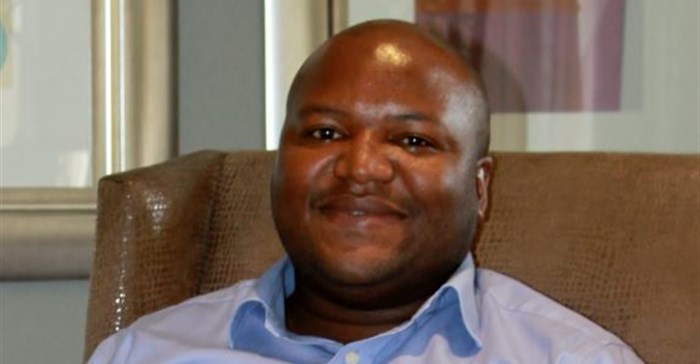A breakthrough in cancer diagnosis and treatment, and the subsequent R600m deal to take it to market, proves not only that drug research and development is alive and well in South Africa, but that collaboration between the government and the private sector is not only possible, but can deliver positive results.

Martin Magwaza Source: Frontshop
BGM Pharma has entered into a landmark partnership with the South African Nuclear Energy Corporation (Necsa) and the University of Cape Town (UCT), to bring GluCABTM, a new theranostic, to market.
Taking a molecule from doctoral thesis to clinical testing for the global market is a huge milestone for the country and indeed the local healthcare market, says co-founder and president of BGM Pharma, Martin Magwaza.
“Although we are a few years from market readiness, the initiation of clinical studies for a local technology is a significant development and represents progress in an area of healthcare that remains a major threat to people throughout the world.”
Cancer a drain on healthcare resources
As the second leading cause of death globally, cancer was responsible for 8.8m deaths in 2015, and approximately 70% of deaths from cancer occur in low- and middle-income countries; 41,647 deaths were reported in South Africa in 2014. The global burden of cancer will grow by 70% over the next two decades, the World Health Organisation predicts, with an estimated 22m new cases and 13m deaths each year by 2032.
“The disease burden of cancer is a resource drain on our healthcare system, and there is a massive need for new and lifesaving medical interventions. Theranostics like GluCAB are the new frontier when it comes to the treatment of an illness that continues to ravage vast populations of people globally,” says Magwaza.
The term “theranostics” was coined to define an agent used for diagnosis via imaging followed by therapy, and according to Magwaza, it’s fast becoming the norm in personalised medicine.
Necsa executive manager, new business development, Brian Mphahlele says, “In recent years cancer research has started to focus on imaging and radiotherapeutic methods with high levels of specificity and sensitivity. In other words methods that detect relatively small tumours and selectively target tumours with minimal side effects or damage to healthy cells. It can be asserted without exaggeration that BGM, UCT and Necsa are collaborating with an express intention to address big and growing global health challenges.”
“The advantages of the new compound over conventional cancer diagnostics and therapeutic procedures are many and include improved diagnosis and treatment, reduced patient recovery time, increased survival rates, and significantly lower pharmacological toxicity and side effects. This will not only have an impact on individual cancer patients and their families, but it promises to become a socio-economic driver in healthcare systems around the globe,” says Mphahlele.
UCT deputy vice chancellor, Prof. Mamokgethi Phakeng, says, “It is exciting to see UCT research being matured through the various development phases in partnership with industry and ultimately making an impact on society. The Faculty of Health Sciences plays a vital role in responding to South African problems in the context of African and global health challenges by supporting training and research.”
Initially the new theranostic will be used to seek, identify and treat solid mass tumours such as those found in breast and ovarian cancer.






























